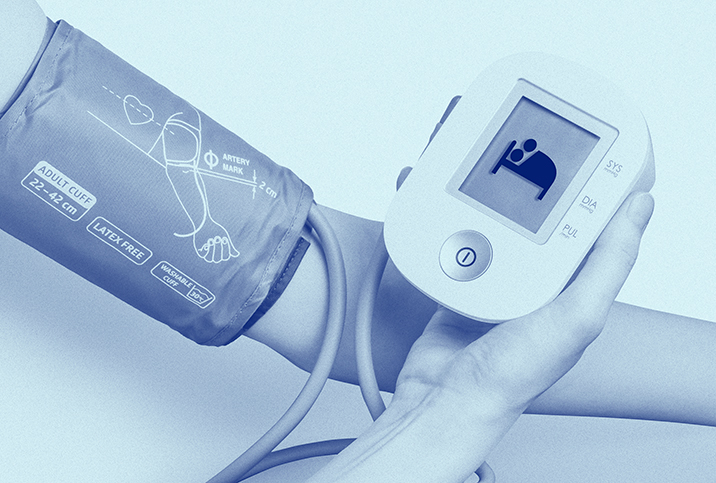New Baby Aspirin Recommendations Are Easy Pills to Swallow

For decades, physicians advised us all to take baby aspirin as part of a daily regimen to prevent cardiovascular disease. If you're over 40, don't be surprised if you don't get that recommendation anymore. And if you're over 60, your doctor will now probably caution you against initiating low-dose aspirin use.
Back in 2016, the U.S. Preventive Services Task Force (USPSTF) recommended adults 50 to 59 years of age with a 10 percent or greater 10-year CVD risk start taking low-dose aspirin for primary prevention of CVD, and that people 60 to 69 years old with commensurate risk factors make an individual decision about initiating low-dose aspirin.
The USPSTF released a draft recommendation statement in October 2021 regarding the use of aspirin to prevent cardiovascular disease (CVD)—the leading cause of death in the U.S.—that contradicted current thinking. The official recommendation of that draft report was that adults 40 to 59 years of age with a 10 percent or greater risk of developing CVD over 10 years should make their own personal decision as to whether to start taking low-dose aspirin for primary prevention of CVD, and persons 60 or older should not initiate low-dose aspirin use for the primary prevention of CVD.
At this time, the 2021 USPSTF draft recommendations remain in published "draft" form, yet to be finalized.
Why the change?
It would be true to say that the field of cardiology can be confusing, and in constant evolution because of research and data.
Chien-Wen Tseng, M.D., M.P.H., a member of USPSTF that produced the 2021 draft statement, emphasized the recommendations do not apply to people with a history of heart attack or stroke who have already been taking aspirin. Those individuals are not encouraged to stop. The recommendations apply to people who have not suffered a heart attack or stroke but who are at risk.
For those persons in the 40 to 59 age range, Tseng stressed the importance of a conversation with a clinician that includes a discussion of potential risk with respect to CVD and whether the possible benefits of using aspirin to prevent that first heart attack outweigh the risks associated with taking aspirin, or vice versa.
"And for some people, there's going to be a small benefit," Tseng said.
'Latest science suggests some small benefits of aspirin use, but only when the measure is matched to the right person.'
The new USPSTF draft recommendations also no longer suggest, as the USPSTF did in 2016, that older adults need to make an individual decision with their doctor about beginning aspirin use to prevent CVD.
"Once somebody reaches age 60, you know, the benefits of trying to take that aspirin to prevent that first [heart] attack or stroke is outweighed by the potential risk of bleeding," Tseng said.
She said the latest science suggests some small benefits of aspirin use, but only when the measure is matched to the right person.
"It no longer is just a blanket recommendation…for somebody just to start, but anybody who wants to start aspirin to prevent that first heart attack or stroke really should be talking to clinicians," Tseng said.
For many cardiologists, the change in guidelines is nothing new, as Purvi Parwani, M.D., a cardiologist at the Loma Linda University International Heart Institute, made clear.
"We follow American Heart Association guidelines," Parwani said. "American Heart Association primary prevention guidelines that were released in 2019 had already updated the aspirin news."
The new expert consensus does not apply to all patients.
The guidelines released by the American Heart Association (AHA) in conjunction with the American College of Cardiology in 2019 recommend adults use aspirin "infrequently in the routine primary prevention of atherosclerotic cardiovascular disease (ASCVD) because of lack of net benefit," and suggest persons 40 to 75 years of age evaluated for CVD prevention undergo "a clinician-patient risk discussion" before commencing aspirin use.
"The partial about-face by the USPSTF, given new medical research over the last few years, puts their recommendations in alignment with the AHA guidelines," Parwani said.
She also echoed Tseng, highlighting the new expert consensus does not apply to all patients.
"So it's very important to make that demarcation because most of our patients with stents or bypass surgery or any known heart disease or stroke, they are already taking aspirin, and this does not apply to them," Parwani added.
Why do it in the first place?
In the case of most heart attacks or strokes, the blood supply to the heart or the brain has become blocked.
Parwani said this process typically starts with atherosclerosis, wherein cholesterol, calcium deposits and fatty substances build up as plaque within the inner lining of the arteries.
Smoking and other unhealthy behaviors can contribute to plaque fragility, Parwani noted, and when plaque breaks apart, it can block off an entire artery. An embolism often ensues.
In their recent draft statement, the USPSTF detailed the mechanism by which aspirin is thought to aid in CVD prevention. The preventive benefit has to do with the cyclooxygenase (COX) enzyme and concomitant platelet function inhibition. But by inhibiting the COX-1 enzyme, acetylsalicylic acid—the active ingredient in aspirin—can lead to gastrointestinal bleeding.
The effects of aspirin can pose a problem if, for example, someone has an ulcer and they need their blood to clot.
"Aspirin is a blood thinner. Thinning the blood to thwart potential damage caused by plaque in the arteries became the rationale for prescribing low-dose aspirin as a CVD prevention measure," Parwani explained, adding that it remains the rationale with respect to patients who have already experienced a heart attack or stroke.
As Tseng noted, the effects of aspirin can pose a problem if, for example, someone has an ulcer and they need their blood to clot so they do not experience a dangerous amount of internal bleeding.
"By irreversibly inhibiting platelet function, aspirin reduces the risk of atherothrombosis but also increases the risk of bleeding, particularly in the gastrointestinal tract," according to the 2019 ACC/AHA report.
The 2021 USPSTF draft recommendations referenced a pooled analysis of 10 trials showing an association between aspirin use and a 58 percent increase in serious gastrointestinal bleeding, and cited another analysis of 11 trials showing increased risk of intracranial bleeds for aspirin users compared to a control group.
Actionable advice with regard to aspirin
Tseng noted that she talks to her own patients about if and why they have a higher risk for heart attack or stroke. She considers her patients' lifestyle, nutrition, exercise, whether or not they smoke, blood pressure and cholesterol levels, as well as family history. If all those are okay, the person is probably not at higher risk for CVD.
She also explained to patients that for the same reason aspirin can prevent blood clots, it can also increase one's risk for bleeding.
One patient could take this information and decide that improving blood pressure first and foremost is the better decision. A different patient, perhaps one who lives a healthier lifestyle and must still take several medications, may decide their risk factors for CVD are high enough that aspirin might be the right choice to prevent a serious cardiovascular event.
'Protect with healthier habits before adopting the over-the-counter drug as preventive medicine.'
"If someone asks about baby aspirin use and that person does not have cardiovascular issues and are not at high risk for developing CVD," Parwani said, "I would encourage the patient to protect themselves with healthier habits before adopting the over-the-counter (OTC) drug as preventive medicine, advice many patients are glad to hear.
"So they welcome this idea, particularly when I tell them that the evidence does not show any benefit when they don't have any other cardiovascular issues previously," Parwani added. "In some patients, I take them off and then [check] their calcium score, if that comes very high, I put them back [on aspirin] again."
Encouraging people to eat unprocessed foods, exercise regularly, control key biomarkers— namely, blood pressure, blood glucose and cholesterol—and, if advised by a doctor, having patients take statins, can all be more important than recommending low-dose aspirin, she noted.
"So I think that we have so much more work to be done when it comes to primary prevention that has nothing to do with baby aspirin," Parwani said. "I think patients benefit maybe more from diet, exercise and a stress-free lifestyle than adding baby aspirin, which particularly in some patients can increase their bleeding risk."


















